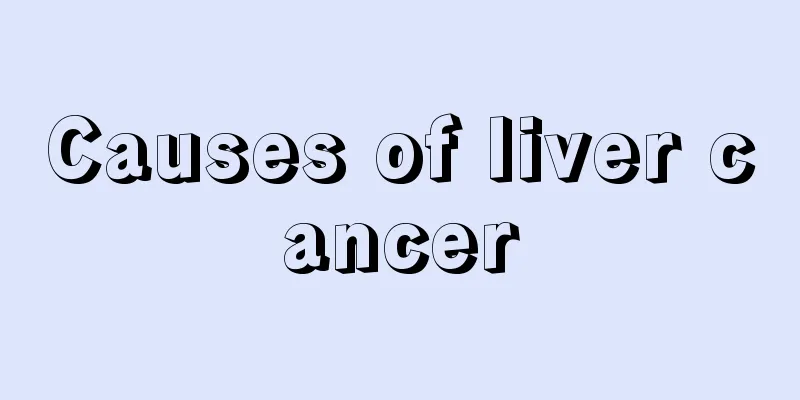Causes of liver cancer

|
It is generally believed that it is a malignant tumor caused by the long-term effects of various harmful factors in the liver's external environment (mainly chemical carcinogens) and certain carcinogens in the body, which causes excessive proliferation of liver cells (or bile duct cells, etc.), resulting in the destruction of normal structures. According to the analysis of a large amount of research data at home and abroad, the main causes of its occurrence are as follows: (1) Viral hepatitis: mainly hepatitis B and C virus infection, especially hepatitis B and hepatitis B virus carriers. (2) Aflatoxin (AFT): Aflatoxin is the most important carcinogen. Long-term consumption of foods containing this toxin can induce liver cancer. (3) Water pollution: Severe pollution of drinking water is one of the important causes of liver cancer. (4) Chemical carcinogens: Chemical substances that can cause liver cancer are mainly nitroso compounds, such as nitrosamines and nitrosamides. In addition, pesticides, alcohol, safrole, etc. can also induce liver cancer. (5) Other factors: Overnutrition (macronutrient intake) or nutritional deficiency (such as vitamin A and vitamin B deficiency), hemochromatosis, parasitic infection and heredity are also risk factors for liver cancer. (6) Immune status: Some people believe that the plasma of liver cancer patients contains a blocking factor that can inhibit cellular immunity and protect liver cancer cells from being killed by immune cells. It has been proven that alpha-fetoprotein (AFP) can inhibit the phagocytosis of lymphocytes and macrophages. (7) Gene mutation: In recent years, some people believe that mutagens and viruses in the environment stimulate the activation of liver cell division response pathways, causing point mutations and gene translocations in cells, which are possible factors of cell proliferation. In addition, the occurrence of liver cancer is also related to the abnormal regulation of cell cycle by non-hemoglobin nuclear proteins, as well as intracellular and extracellular factors such as hormones, peptides, growth factors and polyamines. Many studies have shown that hepatitis and liver cancer are closely related. From an epidemiological point of view, countries or regions with a high incidence of liver cancer are also high-incidence areas of hepatitis. In the same region, people with hepatitis have a much higher risk of developing liver cancer than people without hepatitis. On the contrary, people without hepatitis have a very low risk of developing liver cancer. |
<<: Early clinical manifestations of gastric cancer
>>: Early symptoms of liver cancer
Recommend
My knee hurts when I put force
There is a saying among the people that "the...
How effective is laparoscopic radical nephrectomy for nephrotic carcinoma? The effect is relatively good and the trauma is minimal
Laparoscopic radical surgery is a better option f...
Smoking is the main cause of lung cancer
The incidence and mortality of lung cancer are ri...
The pimples smell bad when squeezed out
Many people get acne, and when they get acne, the...
Side effects of mulberry
Nowadays, people have a strong awareness of healt...
How many degrees below which the thermometer drops
Everyone should prepare a thermometer at home. Wh...
What are alkaline fruits?
Fruit is indispensable in our lives, and differen...
Side effects of freeze-dried powder
In recent years, freeze-dried powder is no longer...
Nicotine will accumulate in the bladder. Smokers should be careful of bladder cancer.
Cystitis is a common urinary tract infection, whi...
What causes high risk of trisomy?
I believe that when a new life comes into a famil...
Will taking diet pills cause bad breath? What causes bad breath?
For a long time, weight loss pills have been a co...
What are the symptoms of breast cancer?
Breast lumps: Breast cancer patients clinically p...
The benefits of drinking Panax notoginseng slices soaked in water
Panax notoginseng is widely used in life and has ...
At what point does the lung detoxify?
The lungs are very important respiratory organs i...
Can advanced liver cancer be cured? Introduction to nine professional treatments for lung cancer
Cancer has always been considered an incurable di...









